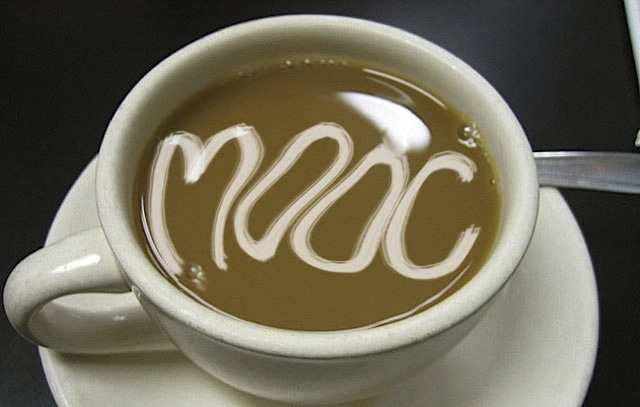
My MOOC Experience…
Ever since the administration at WCC started talking about MOOCs and the potential integration of MOOCs and our course offerings two years ago, I became intrigued with what a MOOC was and how quality of an educational modality it might be. I was certainly a bit skeptical – especially when the completion rates of MOOCs hover in the single digits.
I just completed my first MOOC along with several thousand others (of whom most likely didn’t obtain a certificate J) and I wanted to share my experience with you. The course I chose was History and Future of (Mostly) Higher Education offered through Duke University. The learning objectives of this course caught my eye as I initially began my search for a course through Coursera.
1) Understand how and why we inherited the Industrial Age educational systems.
2) Think deeply about the requirements of the world we live in now.
3) Discover new ideas, methods, competencies, and subject matter.
4) Share our pathways to successful innovation with others around the world. Together, we can change schools, classrooms, institutions, learning--and maybe ourselves!
I figured that participating in this MOOC would not only give me some perspective on them, but might also give me some good ideas for my own online and mixed mode courses. Selfishly, I also thought it might be a great treat to be able to participate in a quality academic forum that had no pressures of GPA and no cost associated with it. Finally, I assumed I would learn something that might make me a more informed teacher in the higher education system. This MOOC was a 6-week course that incorporated video lectures, discussion board threads, readings, optional writing assignments with peer reviews (necessary for receiving a certificate with distinction) and quizzes.
There was definitely a “honeymoon” phase of the course in the first two weeks where the newness and uniqueness shone brightly for me and fed my motivation to participate at the highest level. I was motivated to get the certificate with distinction at the end of the six week so I participated in the first writing assignment and dutifully reviewed the writings of three other classmates. I watched all of the videos and completed the readings. I successfully took the quizzes – that were multiple choice and allowed for repeated attempts - on time and prepared to do well.
Probably much like our own students, by about the third week, I began viewing the requirements of the course as “obligations” and crammed in the work toward the end of the week – just in time to hit the deadlines. I gave up on the certificate with distinction when I saw the feedback on my first writing. I had spent time and energy carefully reviewing my peers’ work and giving thoughtful comments. My work came back with the minimal number scores and hardly any feedback. By the fifth and sixth weeks, I had discovered that in the multiple choice quizzes, the phrase “check all that apply” meant that every answer listed was a correct one and should be chosen. Embarrassingly, I took the final quiz without watching the videos (I scanned the transcripts of the video to make sure I had the highlights) and got a perfect score.
Lessons Learned:
1) I am glad I participated in this course. I am much more informed when I speak of MOOCs and their possibilities to others in my field. I learned a few new things with respect to the history and future of higher education.
2) When something is free, I am much less likely to feel invested and work to the best of my ability.
3) Our distance learning courses are of high quality and offer a lot for our students. I thought taking a course from a very reputable institution of higher learning would represent a showcase experience for me from which to learn. I am not sure their offering was better than (or even on par with) what we offer.
4) It is fun to take the opportunity to keep my brain active through learning. I have since signed up for another MOOC through Harvard: “Unlocking the Immunity to Change” and began that course last week. It appears that it will involve a bit more work and I won’t be able to get through without completing it thoroughly.
5) I don’t think MOOCs will ever replace us as the mode of learning.
I am happy to talk further with anyone who would like more information about MOOCs or my experience participating in a MOOC.
Thanks!
Kris
